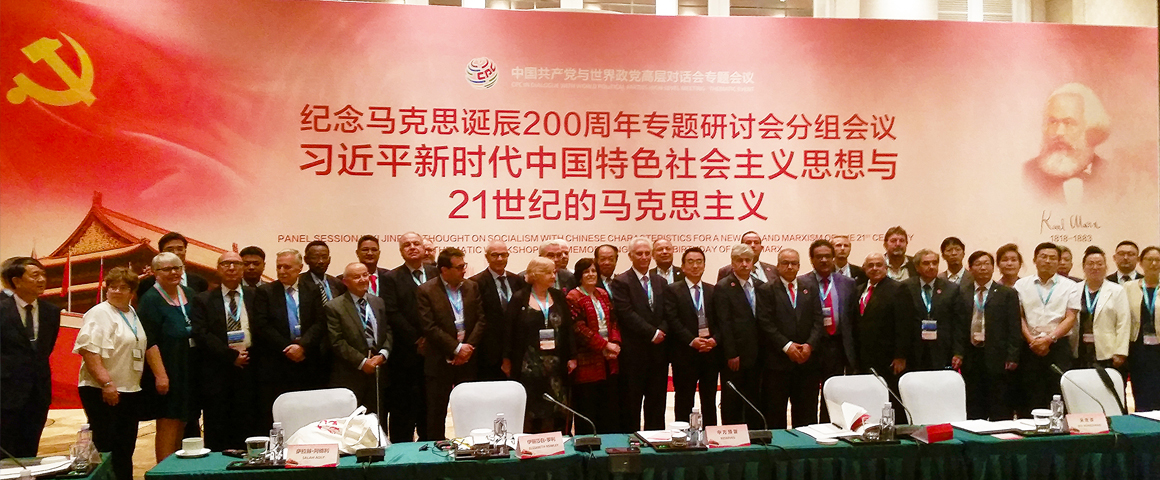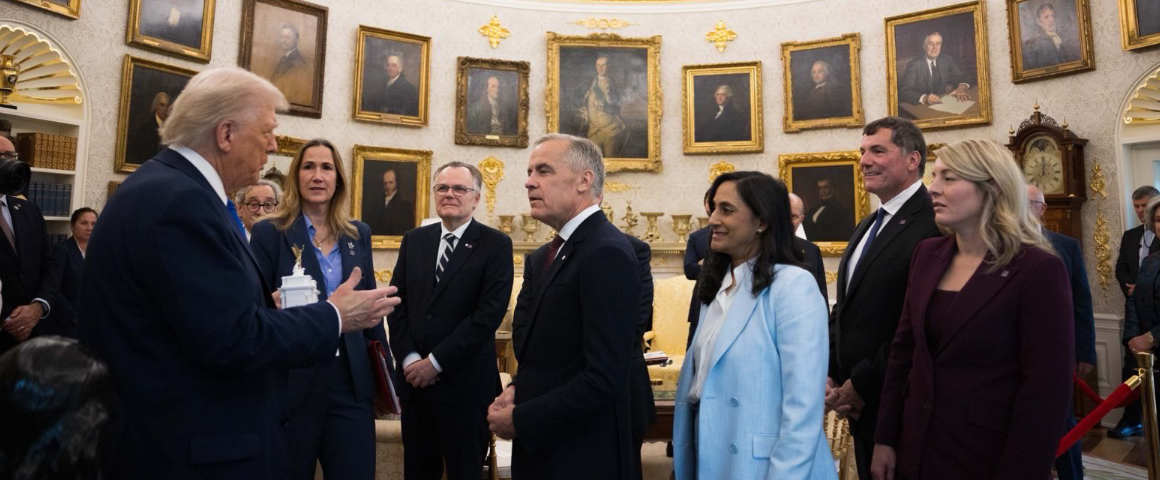In late May, the Communist Party of China invited other Communist, workers’ and left parties from around the world to an important event marking the 200th anniversary of the birth of Karl Marx. About 70 delegates from 50 parties attended a theoretical conference held on May 29 in the southern city of Shenzhen, on “The Historical Contribution of Karl Marx and the Contemporary Significance of Marxism.”
A small fishing village forty years ago, Shenzhen is today a technologically advanced city of more than 12 million residents and the hi-tech capital of the country.
Launching the conference, International Minister Song Tao said the event “demonstrates the firm commitment of the Communist Party of China to maintain and develop the scientific theory of Karl Marx in the 21st century”.
“Marxism helps answer the questions posed by a new era of development in China and the modern world”, Song declared. “Our ‘socialism with Chinese characteristics’ is people centred, it is a theory and a practice for the people’s self-emancipation. It is the people who will judge whether the CPC is doing a good job, unleashing their creativity and making them the masters of the nation.”
The delegates later travelled to other regions, learning and exchanging views about recent developments in China. Two delegates attended from the Communist Party of Canada – CPC leader Elizabeth Rowley, and CEC member Jane Bouey. In an upcoming issue of People’s Voice, the Canadian representatives will report on their trip. Here, we reprint the presentation to the Shenzhen meeting, by Elizabeth Rowley.

Friedrich Engels said at the funeral of Karl Marx: “His name and his work will endure through the ages.” So it has, and so it will. He was and is the father of scientific socialism.
Karl Marx’s titanic stature in human history derives from his monumental contributions to science, and to scientific socialism, to the theory and organization of the revolutionary working class movement, the organization of the Communist League, and later to the International Working Men’s Association – political organizations of the working class that could lead this revolutionary and world-wide struggle for socialism.
As Engels said at Marx’s funeral, “Just as Darwin discovered the law of evolution in organic nature, so Marx discovered the law of evolution in human history; he discovered the simple fact… that mankind must first of all eat and drink, have shelter and clothing, before it can pursue politics, science, religion, art, etc; and that therefore the production of the immediate material means of life and consequently the degree of economic development attained by a given people or during a given epoch, form the foundation upon which the forms of government, the legal conceptions, the art and even the religious ideas of the people concerned have been evolved, and in the light of which these things must there be explained, instead of vice versa as had hitherto been the case.
“Marx also discovered the special law of motion governing the present-day capitalist method of production and the bourgeois society that this method of production has created,” he continued. “The discovery of surplus value suddenly threw light on the problem…. which all previous investigators, both bourgeois economists and socialist critics, had been groping (for) in the dark.
“Two such discoveries would be enough for one life-time,” said Engels. “Happy the man to whom it is granted to make even one such discovery. But in every single field which Marx investigated – and he investigated very many fields, … he made independent discoveries.
“This was the man of science. But this was not even half the man. Science was for Marx a historically dynamic, revolutionary force …. For Marx was before all else a revolutionary. His real mission in life was to contribute in one way or another to the overthrow of capitalist society and of the forms of government which it had brought into being, to contribute to the liberation of the present-day proletariat which he was the first to make conscious of its own position and its needs, of the conditions under which it could win its freedom. Fighting was his element. And he fought with a passion, a tenacity, and a success such as few could rival.”
Karl Marx’ thesis that “Philosophers have hitherto only interpreted the world, in various ways; the point, however, is to change it” is universally recognized as a call to action – as a call to link revolutionary theory to revolutionary practice.
Marx began to write his theoretical works in 1843 and continued until his death 40 years later. His most famous works, The Communist Manifesto and Das Kapital, remain the most influential works on capitalism and socialism yet written, and they continue to shake the world today. The 50 volumes of Marx and Engels Collected Works continue to be a source of enlightenment and inspiration for working people struggling for fundamental social and economic change, for working class power – for socialism.
It is these ideas that have profoundly influenced events in the 19th and 20th centuries, bringing an end to colonialism and birthing the first socialist countries of the Soviet Union, China, Cuba, Vietnam, Laos, and the socialist system of states in Europe.
The great setbacks to socialism of 1989-93 have proven that the road to socialism is not a straight line, as Lenin remarked, and that the class struggle is international, with advances and reversals part and parcel of the struggle. Yet these reversals are historically temporary, and will give way – as with the intense labour of childbirth – to birth a new socialist society. As the Manifesto puts it:
“In place of the old bourgeois society, with its classes and class antagonisms, we shall have an association, in which the free development of each is the condition for the free development of all.”
Marx’s ideas are prescient, urgent, and are already reaching into the 21st century to guide a new wave of socialist revolutions that are the inevitable consequence of capitalism’s built-in crises and irreconcilable contradictions. Parasitic capitalism – already pregnant with socialism – is increasingly relying on the use of force to maintain its rule, as its social base contracts, and its fundamentally exploitative, reactionary and war-mongering character is exposed.
The working class, the grave-digger of capitalism, as Marx said, must become conscious of its historic mission to break the chains of capital and usher in a new epoch of working class power, and socialism. This is the promise of the 21st century.
“Let the ruling classes tremble at a Communist revolution. The proletarians have nothing to lose but their chains. They have a world to win. Workingmen of all countries, unite!”




